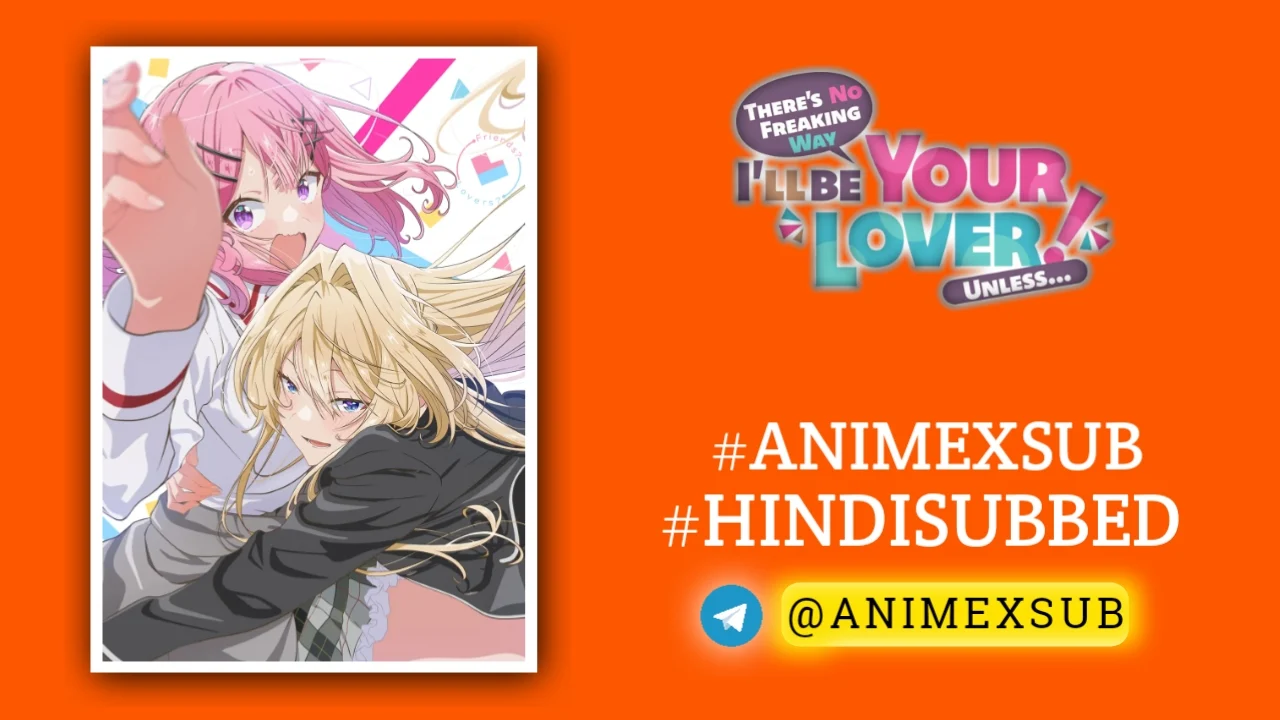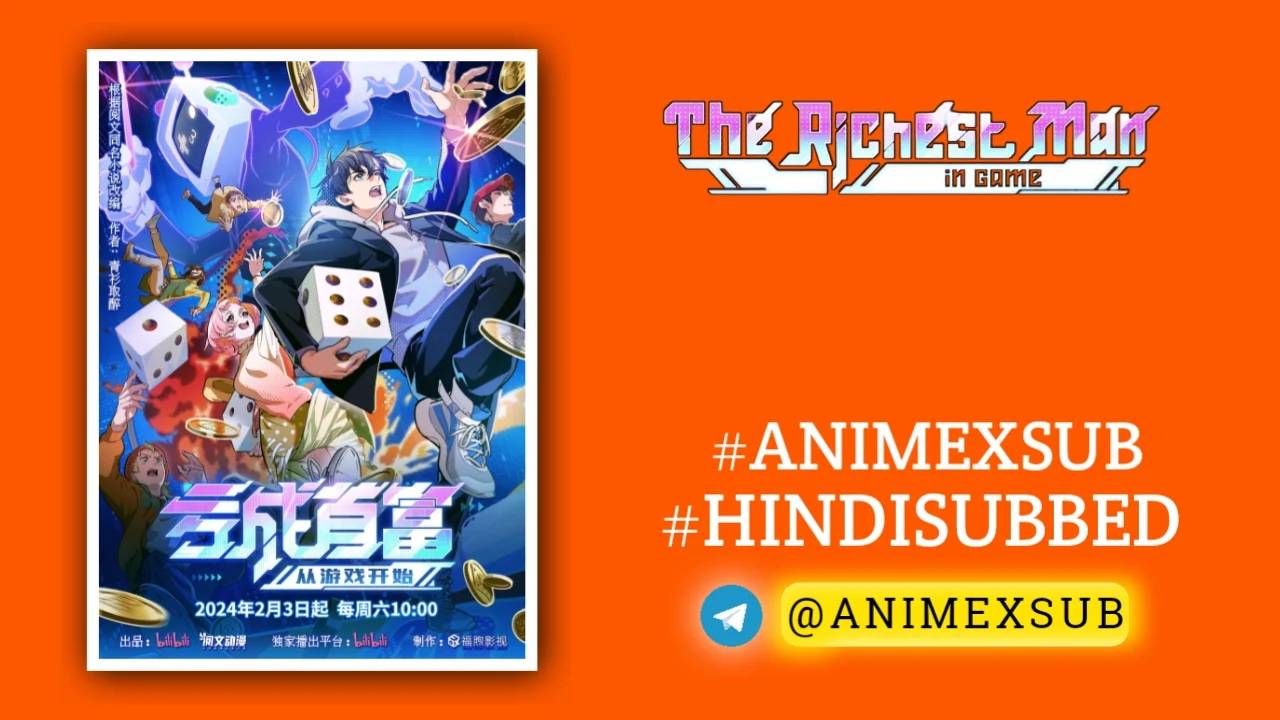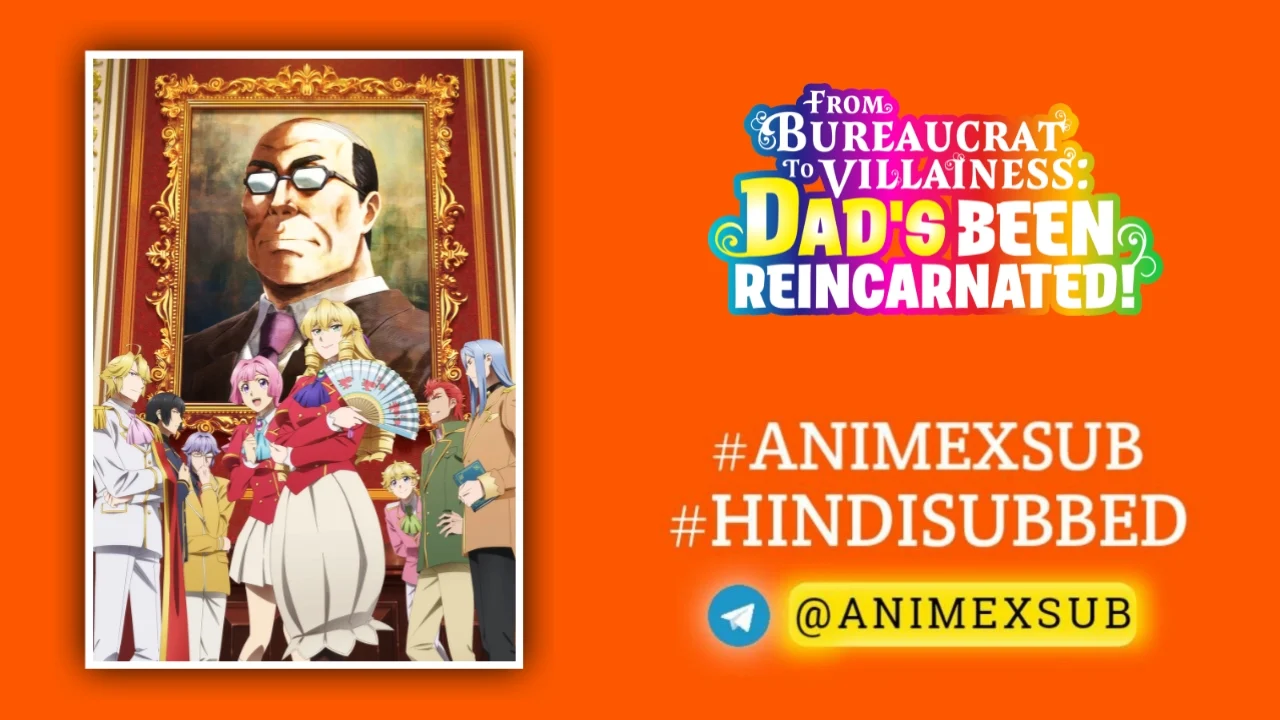
There’s No Freaking Way I’ll be Your Lover! Unless… Hindi Subbed [05/12] {Ongoing}

Watashi ga Koibito ni Nareru Wake Naijan, Murimuri! (※Muri ja Nakatta!?)
There's No Freaking Way I'll Be Your Lover! Unless...Synopsis
Renako Amaori is leaving her awkward and lonely junior high school life behind, determined to become a normal girl with normal friends in high school. Glamorous, confident Mai Ouzuka is Renako’s total opposite: wealthy, outgoing, and a literal fashion model. Against the odds, the two girls form an immediate connection. Renako thinks she may have found the best friend of her dreams…until Mai’s romantic confession sends her into a tailspin. Renako wants to prove to Mai that being BFFs is better than being girlfriends, but Mai is dead set on convincing Renako that they’re destined to be lovers. Let the love games begin! (Source: Seven Seas Entertainment)
Watch Trailer
Characters
There’s No Freaking Way I’ll Be Your Lover! Unless… Season 1: A Yuri Comedy That Dances on the Edge of Friendship and Romance
There’s No Freaking Way I’ll Be Your Lover! Unless… (or WataNare for short) arrived in the Summer 2025 anime season with a burst of neon energy, a quirky premise, and a heartfelt exploration of relationships that sets it apart in the yuri genre. Adapted from Teren Mikami’s light novel series, with illustrations by Eku Takeshima and a manga by Musshu, this Studio Mother production dives into the messy, hilarious, and deeply human dynamics of high school relationships. Season 1, spanning its initial episodes, delivers a rollercoaster of emotions, blending comedy, romance, and social commentary with a boldness that challenges the conventions of yuri anime. This article dissects the show’s strengths, flaws, and unique contributions to the genre, offering a fresh perspective on its narrative and cultural impact.
A Premise That Flips the Script
At its core, WataNare follows Renako Amaori, a socially anxious high school freshman desperate to shed her lonely middle school past and reinvent herself as a “normal” girl with friends. Her plan takes an unexpected turn when she befriends Mai Oduka, the school’s glamorous, confident, and slightly overbearing superstar. Their bond forms quickly, but when Mai confesses her romantic feelings, Renako panics, insisting that friendship is safer and more stable than romance. What follows is a delightfully absurd compromise: a “game” where the two alternate between being best friends and lovers, with Mai’s hairstyle (up for friends, down for lovers) dictating the day’s dynamic. This setup, introduced in the first episode, is both a comedic goldmine and a clever framework for exploring the blurred lines between platonic and romantic relationships.
The premise is deceptively simple but subversive in its execution. Unlike many yuri anime that tiptoe around romantic tension, WataNare leans into it immediately, refusing to let the “will-they-won’t-they” drag on. This directness is refreshing, but it’s the show’s refusal to treat friendship and romance as mutually exclusive that makes it stand out. Renako’s insistence on friendship as a “safer” option stems from her trauma as a middle school outcast, while Mai’s relentless pursuit of romance challenges Renako’s preconceptions about what relationships can be. The show uses this tension to probe deeper questions: Can friendship and romance coexist? Are rigid labels necessary? And what does it mean to truly connect with someone when your insecurities are screaming in the background?
Visuals and Animation: A Neon-Charged Delight
Studio Mother, a relatively new player in the anime industry, brings an unexpected level of polish to WataNare. The animation is vibrant, with a neon-edged color palette that mirrors the show’s high-energy tone. Character designs by kojikoji are expressive and distinct, capturing each girl’s personality through subtle details—Renako’s nervous fidgeting, Mai’s confident smirks, and the sharp-eyed intensity of supporting characters like Satsuki. The show’s visual flair shines in moments of emotional intensity, such as Renako’s panic attack in Episode 1, where rapid camera shifts and dynamic angles immerse viewers in her anxiety. While some critics, like those at Beneath the Tangles, noted that the frenetic pacing could feel overwhelming, these choices effectively convey Renako’s inner turmoil.
The animation isn’t flawless—occasional inconsistencies in background details and rushed crowd scenes betray Studio Mother’s limited budget—but the character-focused sequences are consistently strong. The show’s use of color and lighting, particularly in quieter moments like Renako and Mai’s rooftop encounter, adds emotional depth. Yoshiaki Fujisawa’s soundtrack complements this with upbeat tracks for comedic scenes and softer, introspective melodies for emotional beats, though it rarely steals the spotlight. Overall, the visual and auditory presentation elevates the storytelling, making WataNare a feast for the eyes and a testament to what a smaller studio can achieve with ambition.
Characters: Flawed, Relatable, and Polarizing
The heart of WataNare lies in its characters, particularly Renako and Mai, whose dynamic drives the narrative. Renako is a standout protagonist: her social anxiety, self-deprecating humor, and earnest desire for connection make her instantly relatable. Her internal monologues, filled with gamer-girl references and over-the-top reactions (like shouting “Oduka freaking Mai!”), inject humor while grounding her insecurities in a way that resonates with anyone who’s ever felt like an outsider. Kanna Nakamura’s voice acting brings Renako to life, balancing her nervous energy with moments of quiet vulnerability.
Mai, voiced by Saori Onishi, is a more divisive figure. Her confident, almost pushy pursuit of Renako has drawn criticism from reviewers like Caitlin Moore at Anime News Network, who called her “a creep” for her lack of regard for Renako’s boundaries. Mai’s behavior—particularly in early episodes, where she pressures Renako into the “friends or lovers” game—can feel uncomfortable, especially when viewed through a lens of consent. However, the show doesn’t shy away from addressing this. Later episodes, particularly around Episode 5, hint at Mai’s own insecurities and the reasons behind her aggressive approach, adding nuance to her character. While some viewers may find her actions problematic, others, like the reviewer at DoubleSama, argue that her dominance in the relationship is part of the show’s charm, setting up an inevitable arc where Renako asserts herself.
The supporting cast adds complexity to the story. Satsuki, Mai’s rival-friend, introduces a potential love triangle (or harem, as some Reddit users speculate), with her sharp wit and ambiguous feelings toward both Renako and Mai. Sena Ajisai, described as an “absolute angel” in the light novels, brings a softer dynamic, though her role in Season 1 is limited. The ensemble’s interactions hint at a deeper exploration of group dynamics in future episodes, with the show teasing a “yuri harem” structure that could either enrich or complicate the central romance.
Themes and Social Commentary
WataNare distinguishes itself by weaving social commentary into its comedic framework. Renako’s struggle to reinvent herself reflects the pressure many teens face to conform to social expectations, particularly in high school. Her fear of romance stems from a deeper fear of vulnerability, a theme the show explores with surprising depth. As Anime Feminist notes, the series tackles the “performance” of relationships—how societal norms dictate what friendship and romance should look like, and how those expectations can trap people in rigid roles. Renako’s insistence on friendship as a “safe” space contrasts with Mai’s view of romance as freeing, creating a dialogue about the fluidity of relationships that feels both universal and specific to the yuri genre.
The show also touches on issues of consent and power dynamics, though not without flaws. Mai’s initial disregard for Renako’s boundaries has sparked debate, with some reviewers, like those on Reddit, noting that the series treats this as a serious arc rather than a throwaway gag. While the light novel delves deeper into the repercussions of Mai’s actions (including references to sexual assault, as noted in an Amazon review), the anime keeps things lighter, which may disappoint viewers seeking a more serious resolution. Still, the show’s willingness to engage with these topics, even imperfectly, sets it apart from more escapist yuri fare.
Pacing and Narrative: A Double-Edged Sword
The pacing of WataNare is one of its most polarizing aspects. The show’s “breathless” energy, as described by Anime Feminist, keeps things lively but can feel rushed, especially in later episodes. The first half of Episode 1 is a masterclass in establishing character and stakes, with Renako’s social anxiety and Mai’s confession setting up the central conflict. However, as the season progresses, the rapid introduction of new characters and subplots (like Satsuki’s involvement in Episode 5) can dilute the focus on Renako and Mai. Reddit users have expressed concern about the pacing, with some worrying that the show might cram too much into a single cour, a common issue with light novel adaptations.
Despite this, the narrative structure is innovative. The “friends or lovers” game provides a clear framework for each episode, with comedic set pieces (like Renako and Mai’s VR arcade date) balanced by quieter moments of introspection. The show’s humor, rooted in yuri tropes like the “is it because we’re both girls?” question, is self-aware without being cynical. However, as Anime News Network’s review of Episodes 1-3 notes, the second half of the season loses some steam, leaning more on harem dynamics than the found-family theme that made the early episodes so compelling.
Reception and Cultural Impact
WataNare has garnered a mixed but largely positive response. Fans on Reddit and MyAnimeList praise its bold premise and vibrant animation, with some calling it a potential “best yuri anime” for its unapologetic focus on romance. Critics, however, are divided on Mai’s characterization and the show’s handling of consent. Anime News Network’s Summer 2025 preview highlights the visual strengths but notes that the premise may not resonate with everyone, particularly those put off by Mai’s intensity. Meanwhile, Twirling Book Princess lauds the manga’s art and premise, suggesting that the anime captures the same charm.
The show’s cultural impact lies in its contribution to the yuri genre, which has historically struggled with limited budgets and subtle romantic subtext. WataNare joins a wave of 2025 yuri adaptations that embrace explicit romance, alongside titles like Whisper Me a Love Song. Its availability on YouTube via REMOW (albeit with episodes removed weekly) has made it accessible, though the licensing model has frustrated some fans. By centering a queer relationship with humor and heart, WataNare pushes the genre forward, even if it stumbles in addressing heavier themes.
Final Thoughts
There’s No Freaking Way I’ll Be Your Lover! Unless… Season 1 is a bold, messy, and endlessly entertaining addition to the yuri canon. Its innovative premise, vibrant visuals, and relatable characters make it a standout, while its exploration of friendship, romance, and identity offers a fresh perspective on familiar tropes. The show isn’t perfect—Mai’s characterization and the rushed pacing may alienate some viewers—but its willingness to take risks and tackle complex themes sets it apart. For fans of yuri, comedy, or coming-of-age stories, WataNare is a must-watch that proves there’s always a “unless” when it comes to love and connection.
Sources: Anime News Network, Anime Feminist, DoubleSama, Reddit, MyAnimeList, Twirling Book Princess1
Support Our Anime Community!
Love watching the latest anime? Help us keep uploading new episodes by join telegram channel ❤️
Join Now!










